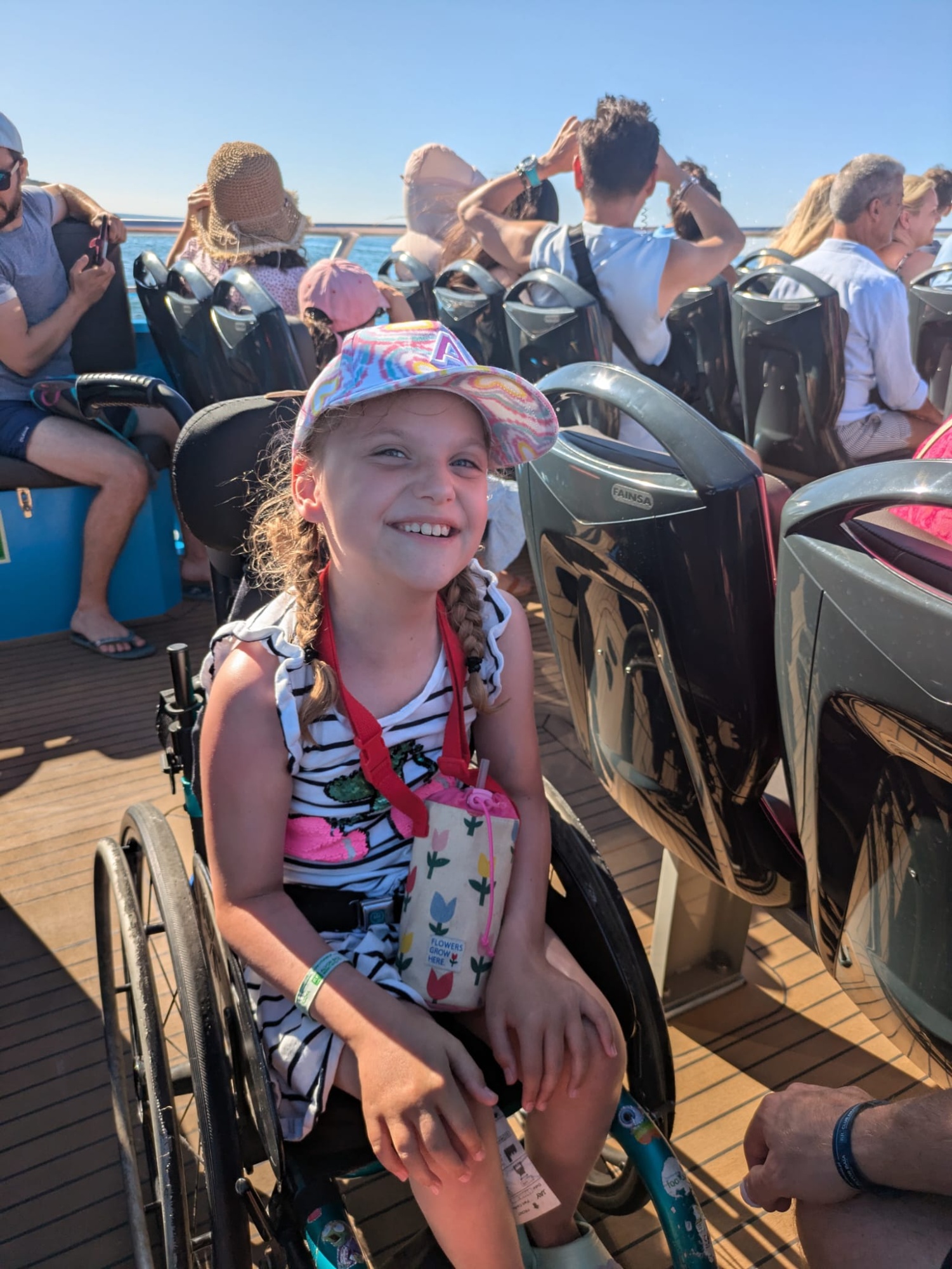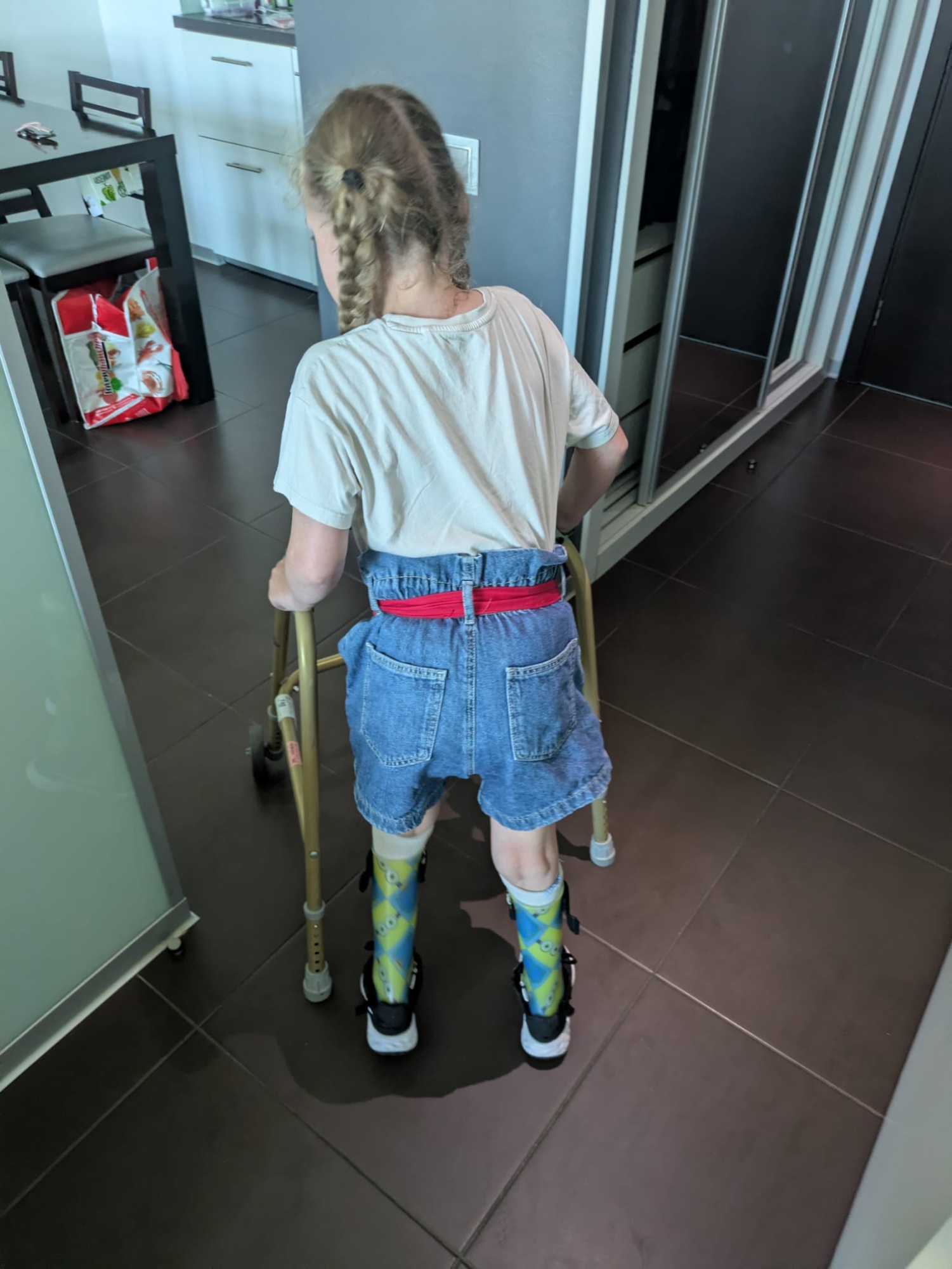Flying and Travelling Abroad with a Medically Complex Child
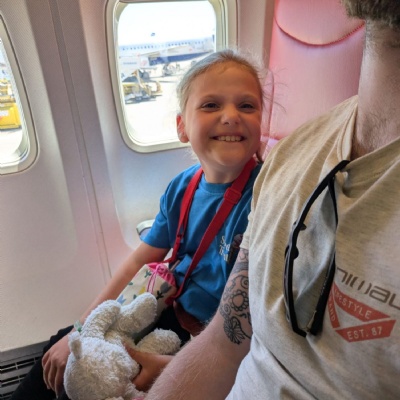
Travelling with a medically complex child can feel overwhelming — but with the right planning and support, it can be done smoothly and safely. Here is a step-by-step guide collated by lots of parents who have children with varying complex needs and between them have been on a few holidays!
Before You Travel
1. Book Special Assistance Early
As soon as your holiday is booked, get in touch with the airline’s special assistance team. They are your best point of contact and can guide you through everything from extra luggage allowances to mobility support. The earlier you contact them, the better. Special assistance will also help with adapted transfers.
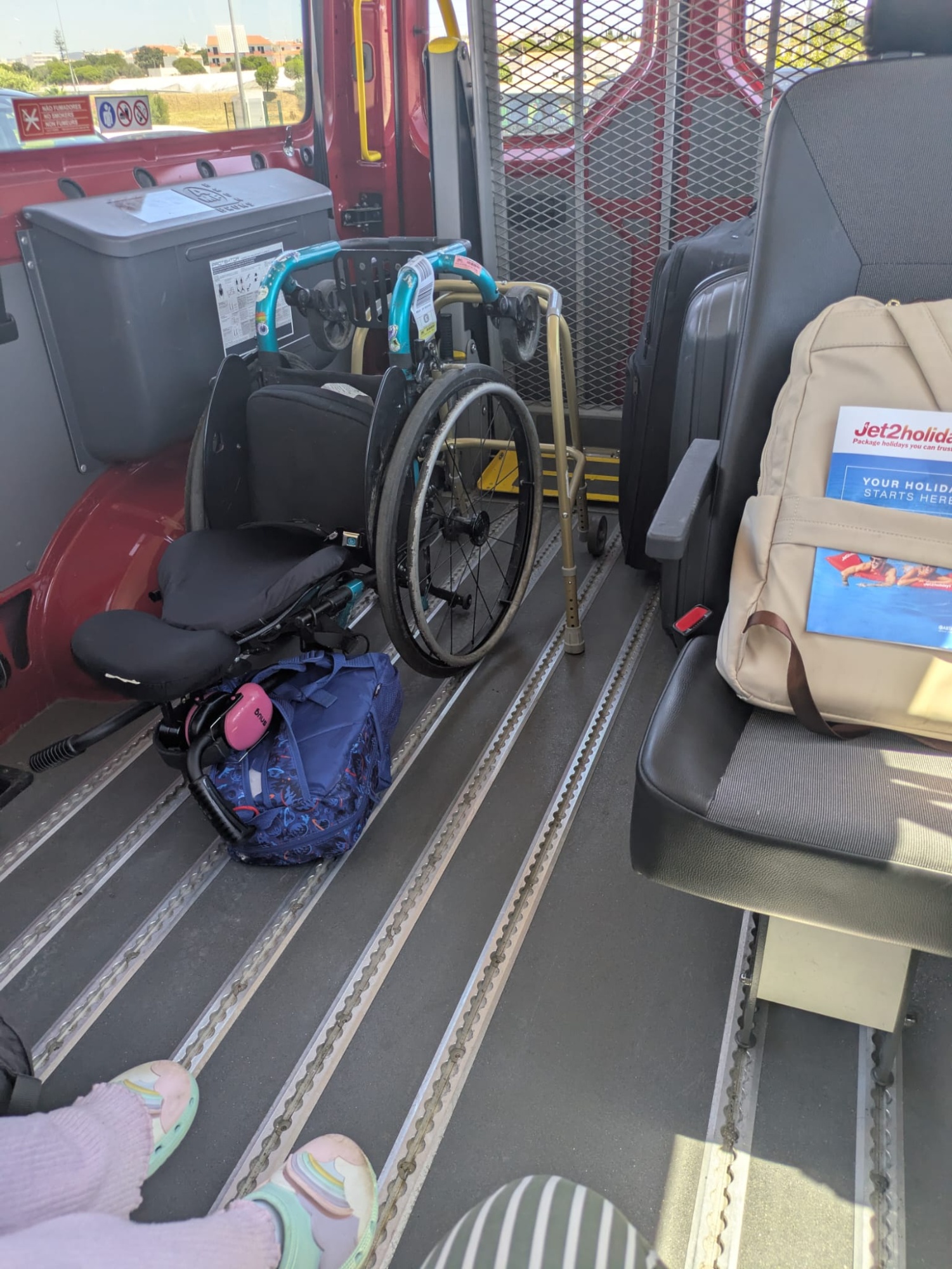
Example of an adapted transfer that was provided on a holiday to Portugal. Travelling in their wheelchair was not needed, but was available. However, room for all the equipment was needed and the tail lift on the van meant the wheelchair, walker and shower chair travelled safely.
2. Medical Equipment and Supplies
-
Feeding pumps, oxygen, electric wheelchairs, and battery-powered medical devices can be taken on flights — just provide the details to the airline early.
-
You can bring prescription milk and liquids on board. Just declare them and bring a letter from your consultant or GP, or your prescription.
-
Need specialist seating (like a Firefly GoTo, Crelling harness, or car seat)? Check with your airline in advance, as each has different rules.
3. Fit-to-Fly Letter
Ask your child’s consultant if a “fit to fly” letter is needed. Some airlines require one, especially if your child has complex needs.
4. Stock-up on Medications
-
Request medications early from your GP or pharmacy — bring enough for your trip plus a few extra days.
-
Keep all medications (plus prescriptions and repeat forms) in your hand luggage.
-
Pack medical supplies across all luggage in case one bag gets delayed.
5. Medical Crates & Luggage
-
You may be allowed extra weight (typically up to 32kg per medical crate) — check with your airline.
-
Feeding companies can provide one free of charge, give them a call and they will send one to you.
-
Padding crates with towels is handy, and it gives you somewhere to store wet ones for the return journey!
6. Insurance
Always speak to underwriters directly to make sure your policy covers your child’s full medical needs. If insurance is costly, consider upgrading to an annual plan and booking next year’s holiday within that coverage window.
7. Other Essentials
-
Carry your child’s care plan — ideally with a translated version for your destination.
-
If needed, speak to your community nurses for waterproof dressings or extra medical supplies.
-
Let your nurses know you’re travelling — they may be able to help.
-
Bring a doctor's letter for fluids and any medicines that need to stay sterile during travel.
At the Airport
1. Head to the Special Assistance Desk
This is your first stop. You’ll often get priority access through security, and staff can stay with you if needed.
2. Using Mobility Aids
-
You can usually use your child’s wheelchair or mobility device right up until boarding.
-
If needed, an Ambulift can help board without using stairs.
3. Wheelchair Safety Tips
-
Don’t let the airline take your wheelchair until you’re already on the plane. Do not use the airline's aisle chair until the very last moment, transfer into it in the Ambulift just before boarding.
-
Ask for it to be stored in the cabin if possible (e.g., in the crew area).
-
Unfortunately, damage does happen — taking a photo of the wheelchair in good condition before boarding (ideally with your child in it) can be helpful if you need to claim.
4. Security Checks
-
Items like feeding pump bags may be checked — let staff know if they’re physically attached or in use.
-
You’ll be first on and last off the plane — which helps avoid the crowd and gives you time to settle in.
5. Let Staff Know About Your Child’s Needs
Flight attendants are usually happy to help if you share any specific needs before take-off.
Tips for Being Abroad with a Medically Complex Child
1. Be Prepared
-
Pack more than you think you need — at least 3 extra days of supplies.
-
Keep 2 days' worth of essentials in your hand luggage.
-
Bring copies of prescriptions, care plans, and letters from your doctor.
2. Know the Local Healthcare Providers and Locations
-
Research the nearest hospital that can meet your child’s needs.
-
Research local mobility shops! You can hire lots of different equipment and often it is able to be at your hotel prior to your arrival.
-
Make sure your insurance covers transfers and specialist care.
3. Be Ready for Border Checks
-
If crossing borders (e.g., North to South Cyprus), be aware that needles and syringes may be confiscated even with prescriptions. In emergencies, contact your medical supplier once you're through.
4. Practical Extras
-
Milton wipes and fluid are great for cleaning while out and about.
-
Syringe caps make it easy to draw up and carry medications.
-
Swimming leggings are great for beach/pool days if your child crawls or shuffles.
-
Take photos of any specialist dressings — these can be shown at a pharmacy if you run out and need replacements.
-
Organise supplies on your first day. That way you have plenty of time to sort out if you have forgotten anything!
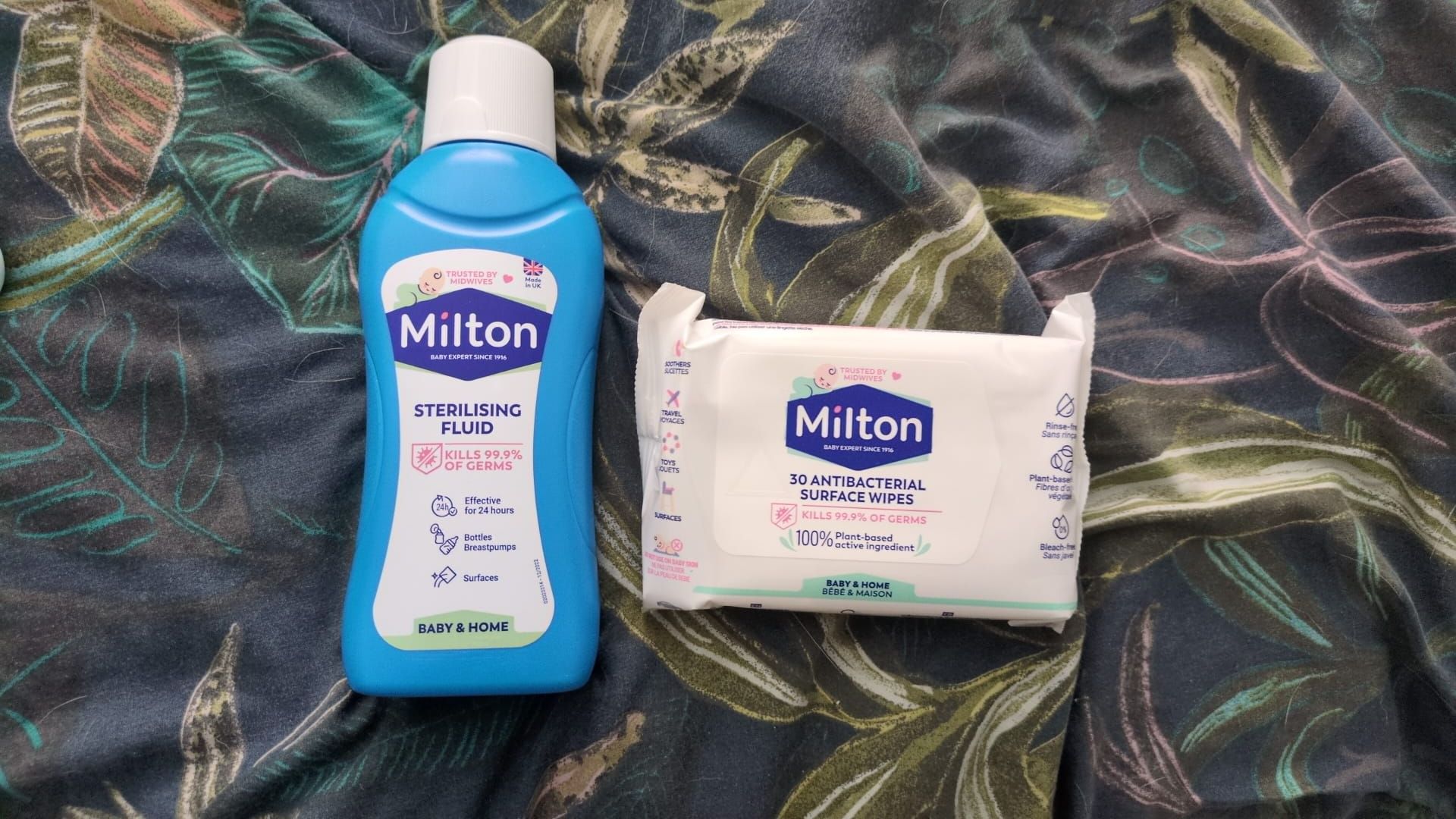
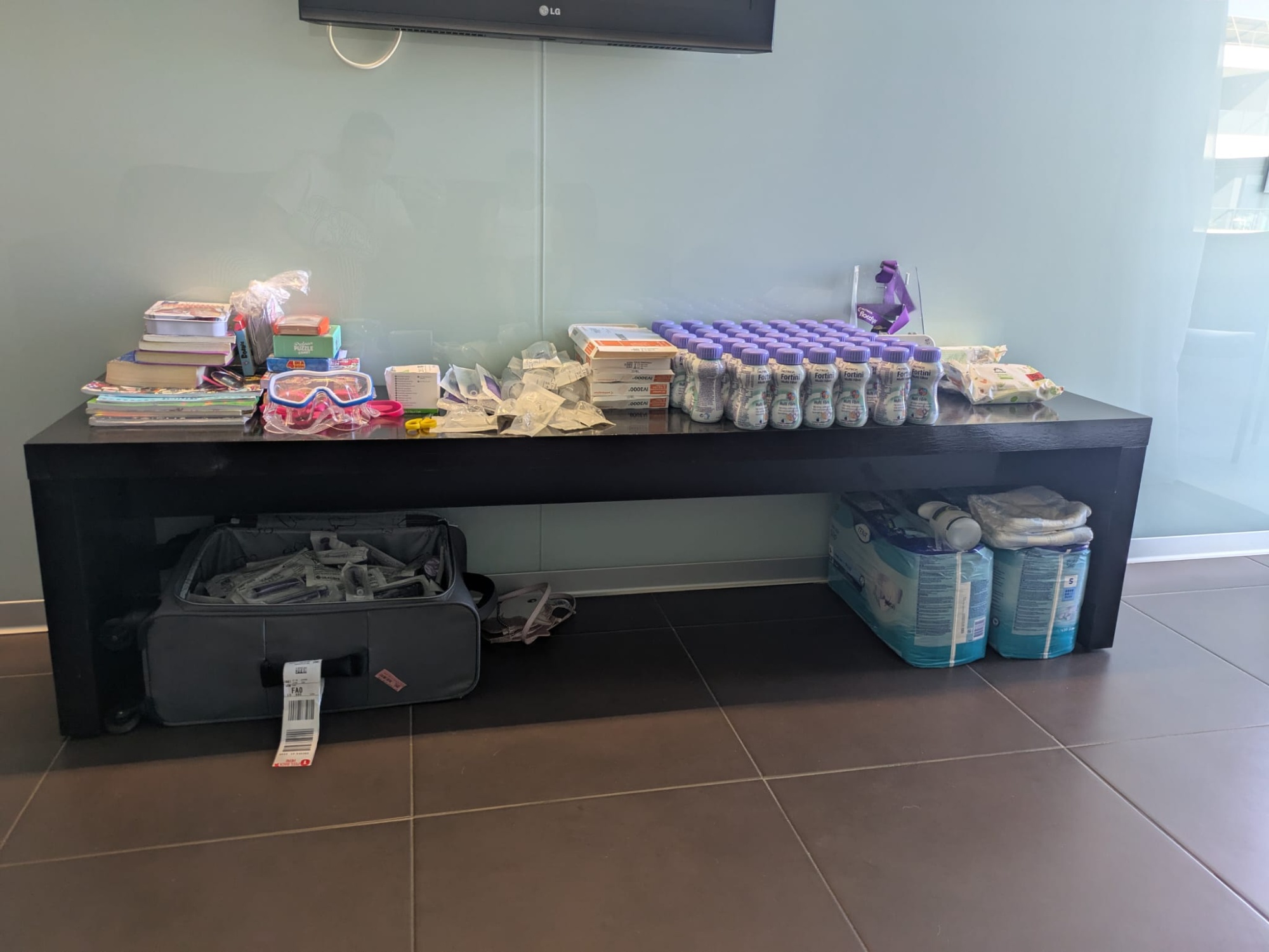
Finally...
Enjoy your holiday. The stress beforehand is SO worth it when you are round that pool with an ice-cold drink!
